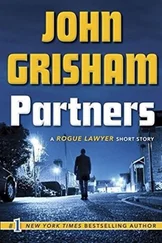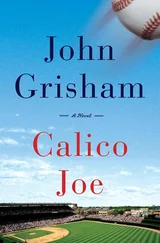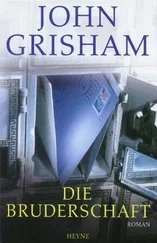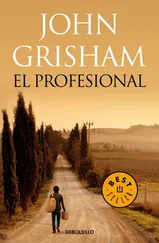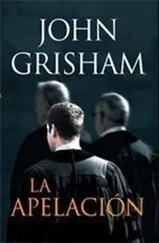John Grisham - Chamber
Здесь есть возможность читать онлайн «John Grisham - Chamber» весь текст электронной книги совершенно бесплатно (целиком полную версию без сокращений). В некоторых случаях можно слушать аудио, скачать через торрент в формате fb2 и присутствует краткое содержание. Жанр: Триллер, на английском языке. Описание произведения, (предисловие) а так же отзывы посетителей доступны на портале библиотеки ЛибКат.
- Название:Chamber
- Автор:
- Жанр:
- Год:неизвестен
- ISBN:нет данных
- Рейтинг книги:4 / 5. Голосов: 1
-
Избранное:Добавить в избранное
- Отзывы:
-
Ваша оценка:
- 80
- 1
- 2
- 3
- 4
- 5
Chamber: краткое содержание, описание и аннотация
Предлагаем к чтению аннотацию, описание, краткое содержание или предисловие (зависит от того, что написал сам автор книги «Chamber»). Если вы не нашли необходимую информацию о книге — напишите в комментариях, мы постараемся отыскать её.
Chamber — читать онлайн бесплатно полную книгу (весь текст) целиком
Ниже представлен текст книги, разбитый по страницам. Система сохранения места последней прочитанной страницы, позволяет с удобством читать онлайн бесплатно книгу «Chamber», без необходимости каждый раз заново искать на чём Вы остановились. Поставьте закладку, и сможете в любой момент перейти на страницу, на которой закончили чтение.
Интервал:
Закладка:
It was unlikely there would be movement by any court on Sunday. It was certainly possible since the death clerks and their staffs were on call when an execution was looming. But Friday and Saturday had passed without rulings coming down, and he expected the same inactivity today. Tomorrow would be much different, in his untrained and untested opinion.
Tomorrow would be nothing but frenzy. And Tuesday, which of course was scheduled to be Sam's last day as a breathing soul, would be a nightmare of stress.
But this Sunday morning was remarkably calm. He had slept almost seven hours, another recent record. His head was clear, his pulse normal, his breathing relaxed. His mind was uncluttered and composed.
He flipped through the Sunday paper, scanning the headlines but reading nothing. There were at least two stories about the Cayhall execution, one with more pictures of the growing circus outside the prison gate. The rain stopped when the sun came up, and he sat in a wet rocker for an hour scanning Lee's architectural magazines. After a couple of hours of peace and tranquility, Adam was bored and ready for action.
There was unfinished business in Lee's bedroom, a matter Adam had tried to forget but couldn't. For ten days now, a silent battle had raged in his soul over the book in her drawer. She'd been drunk when she told him about the lynching photo, but it was not the delirious talk of an addict. Adam knew the book existed. There was a real book with a real photo of a young black man hanging by a rope, and somewhere under his feet was a crowd of proud white people, mugging for the camera, immune from prosecution. Adam had mentally pieced the picture together, adding faces, sketching the tree, drawing the rope, adding titles to the space under it. But there were some things he didn't know, he couldn't visualize. Was the dead man's face perceptible? Was he wearing shoes, or barefoot? Was a very young Sam easily recognizable? How many white faces were in the photo? And how old were they? Any women? Any guns? Blood? Lee said he'd been bullwhipped. Was the whip in the photo? He had imagined the picture for days now, and it was time to finally look in the book. He couldn't wait until later. Lee might make a triumphant return. She might move the book, hide it again. He planned to spend the next two or three nights here, but that could change with one phone call. He could be forced to rush to Jackson or sleep in his car at Parchman. Such routine matters as lunch and dinner and sleeping were suddenly unpredictable when your client had less than a week to live.
This was the perfect moment, and he decided that he was now ready to face the lynch mob. He walked to the front door and scanned the parking lot, just to make sure she hadn't decided to drop in. He actually locked the door to her bedroom, and pulled open the top drawer. It was filled with her lingerie, and he was embarrassed for this intrusion.
The book was in the third drawer, lying on top of a faded sweatshirt. It was thick and bound in green fabric - Southern Negroes and the Great Depression. Published in 1947 by Toffler Press, Pittsburgh. Adam clutched it and sat on the edge of her bed. The pages were immaculate and pristine, as if the book had never been handled or read. Who in the Deep South would read such a book anyway? And if the book had been in the Cayhall family for several decades, then Adam was positive it had never been read. He studied the binder and pondered what set of circumstances brought this particular book into the custody of the Sam Cayhall family.
The book had three sections of photos. The first was a series of pictures of shotgun houses and ramshackle sheds where blacks were forced to live on plantations. There were family portraits on front porches with dozens of children, and there were the obligatory shots of farm workers stooped low in the fields picking cotton.
The second section was in the center of the book, and ran for twenty pages. There were actually two lynching photos, the first a horribly gruesome scene with two robed and hooded Kluckers holding rifles and posing for the camera. A badly beaten black man swung from a rope behind them, his eyes half open, his face pulverized and bloody. KKK lynching, Central Mississippi, 1939, explained the caption under it, as if these rituals could be defined simply by locale and time.
Adam gaped at the horror of the picture, then turned the page to find the second lynching scene, this one almost tame compared to the first. The lifeless body at the end of the rope could be seen only from the chest down. The shirt appeared to be torn, probably by the bullwhip, if in fact one had been used. The black man was very thin, his oversized pants drawn tightly at the waist. He was barefoot. No blood was visible.
The rope that held his body could be seen tied to a lower branch in the background. The tree was large with bulky limbs and a massive trunk.
A festive group had gathered just inches under his dangling feet. Men, women, and boys clowned for the camera, some striking exaggerated poses of anger and manliness - hard frowns, fierce eyes, tight lips, as if they possessed unlimited power to protect their women from Negro aggression; others smiled and seemed to be giggling, especially the women, two of whom were quite pretty; a small boy held a pistol and aimed it menacingly at the camera; a young man held a bottle of liquor, twisted just so to reveal the label. Most of the group seemed quite joyous that this event had occurred. Adam counted seventeen people in the group, and every single one was staring at the camera without shame or worry, without the slightest hint a wrong had been committed. They were utterly immune from prosecution. They had just killed another human, and it was painfully obvious they had done so with no fear of the consequences.
This was a party. It was at night, the weather was warm, liquor was present, pretty women. Surely they'd brought food in baskets and were about to throw quilts on the ground for a nice picnic around the tree.
Lynching in rural Mississippi, 1936, read the caption.
Sam was in the front row, crouched and resting on a knee between two other young men, all three posing hard for the camera. He was fifteen or sixteen, with a slender face that was trying desperately to appear dangerous - lip curled, eyebrows pinched, chin up. The cocky braggadocio of a boy trying to emulate the more mature thugs around him.
He was easy to spot because someone had drawn, in faded blue ink, a line across the photo to the margin where the name Sam Cayhall was printed in block letters. The line crossed the bodies and faces of others and stopped at Sam's left ear. Eddie. It had to be Eddie. Lee said that Eddie had found this book in the attic, and Adam could see his father hiding in the darkness, weeping over the photograph, identifying Sam by pointing the accusatory arrow at his head.
Lee also had said that Sam's father was the leader of this ragtag little mob, but Adam couldn't distinguish him. Perhaps Eddie couldn't either because there were no markings. There were at least seven men old enough to be Sam's father. How many of these people were Cayhalls? She'd also said that his brothers were involved, and perhaps one of the younger men resembled Sam, but it was impossible to tell for certain.
He studied the clear, beautiful eyes of his grandfather, and his heart ached. He was just a boy, born and reared in a household where hatred of blacks and others was simply a way of life. How much of it could be blamed on him? Look at those around him, his father, family, friends and neighbors, all probably honest, poor, hardworking people caught for the moment at the end of a cruel ceremony that was commonplace in their society. Sam didn't have a chance. This was the only world he knew.
How would Adam ever reconcile the past with the present? How could he fairly judge these people and their horrible deed when, but for a quirk of fate, he would've been right there in the middle of them had he been born forty years earlier?
Читать дальшеИнтервал:
Закладка:
Похожие книги на «Chamber»
Представляем Вашему вниманию похожие книги на «Chamber» списком для выбора. Мы отобрали схожую по названию и смыслу литературу в надежде предоставить читателям больше вариантов отыскать новые, интересные, ещё непрочитанные произведения.
Обсуждение, отзывы о книге «Chamber» и просто собственные мнения читателей. Оставьте ваши комментарии, напишите, что Вы думаете о произведении, его смысле или главных героях. Укажите что конкретно понравилось, а что нет, и почему Вы так считаете.




